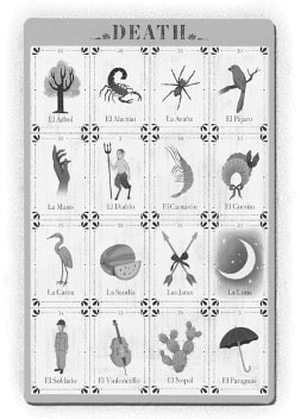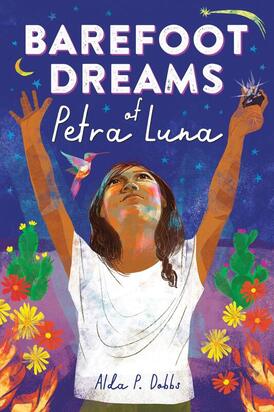|
Las Musas is thrilled to reveal the cover to Yamile Saied Méndez's newest book, Friends Like These... and give readers a sneak peek with a short excerpt! But first, let's get into what this exciting book is all about:
Trouble in Paradise? In this second installment of Horse Country, critically acclaimed author Yamile Saied Méndez welcomes readers back to the ranch. Carolina's hope of opening up Paradise Ranch to everyone is coming true: the Unbridled Dreams program is ready to welcome its first sponsored student! Gisella Bassi seems like the perfect fit -- on paper, that is. When she arrives at Paradise Ranch, she's not as excited as everyone expects. She might even be... scared of the horses? But if their first student isn't a success, there's no way the program will continue. Can Caro and her new friend, Chelsie, agree on how to rope Gisella in? Friends Like These (Horse Country 2) -- Coming from Scholastic on June 28th, 2022 By: Yamile Saied Méndez, Pura Belpré winner author Illustrator: Winona Nelson Designer: Stephanie Yang And now for the cover! Drum roll.....
0 Comments
We’re so thrilled to celebrate the release of Alda P. Dobbs’s middle-grade debut, Barefoot Dreams of Petra Luna. We have a great interview between Musas Alda P. Dobbs and Anika Fajardo, along with Alda's letter to the reader, but first a little about the book!
AF: Congratulations on your debut middle-grade novel, Alda!
AD: Thank you, Anika! I’m a big fan of your beautiful middle grade, What If A Fish, and it’s such an honor to be interviewed by you! AF: Thank you so much. Can you tell us a bit about your book in your own words? AD: Sure! It is 1913, and twelve-year-old Petra Luna's mama has died while the Revolution rages in Mexico. Before Petra’s papa is dragged away by soldiers, Petra vows that she will care for the family she has left―her abuelita, little sister Amelia, and baby brother Luisito―until they can be reunited. They flee north through the unforgiving desert as their town burns, searching for safe harbor in a world that offers none. Each night when Petra closes her eyes, she holds her dreams close, especially her long-held desire to learn to read. Abuelita calls these barefoot dreams: "They're like us barefoot peasants and indios―they're not meant to go far." But Petra refuses to listen. Through battlefields and deserts, hunger and fear, Petra will stop at nothing to keep her family safe and lead them to a better life across the U.S. border―a life where her barefoot dreams can finally become reality. AF: What inspired you to tell Petra's story? Las Musas is celebrating the release of Karla Valenti’s debut middle grade novel Lotería, out this week!. In their starred review, School Library Journal describes the novel as, “A magical, philosophical tale rooted in Mexican lore that will hold readers from beginning to end with its verdant language and setting.” Scroll on for a conversation between Musas NoNieqa Ramos and Karla Valenti! NoNieqa Ramos: Karla, your novel is captivating, breathtaking, and unforgettable. I postponed reading the ending so I could emotionally prepare. How did you conceive of the idea for Lotería? How did you feel when it went to auction? Karla Valenti: For almost a decade I had been brainstorming a story about a girl who doesn’t know she’s trapped in a game. I tested out a number of variations of this theme, but none of them seemed quite right. Then my father gave my kids a game of “Lotería” (similar to Bingo but with images on the cards instead of numbers).  Example: This is the tabla Death uses in the book. Example: This is the tabla Death uses in the book. Around this time we were also headed to Oaxaca City (Mexico) for my brother’s wedding. Oaxaca is a very special city, and suddenly I found myself surrounded by its enchanting colors and sounds, food and music, an ancient culture wedded with a contemporary lifestyle. It was the perfect brew to jump start the story. As soon as I returned from my brother’s wedding, I wrote the book… but, my first agent didn’t like it. I had suffered so many rejections at that point that I was devastated. I began to doubt that the story actually had any merit or that I had any talent as a writer. Fortunately, one of my dear critique partners had enough faith in the book (and me) to talk me off the ledge. She also reminded me that this business is highly subjective, which allowed me to see that my agent at the time (a kind and lovely person) was probably not the right business partner for me and the kind of storytelling I wanted to do. We decided to part ways and I used Lotería to pitch new agents. To my immense delight, I received four offers of representation and ended up signing with the wonderful Ammi-Joan Paquette (EMLA). Shortly after, the book went out on submission. I was blown away by the enthusiasm it received, and I still cannot believe it went to auction. How did that feel? Exhilarating, of course. But also, validating. At that point, I had spent more than a decade writing, revising, learning, revising, building my writing community, revising, and being rejected (hundreds of times!). To have my debut novel go to auction (as a two-book deal) helped me understand how important those ten+ years of work had been. NoNieqa: The characters Clara and her cousin Esteban are crafted so tenderly and lovingly. What were you influences in creating these characters and their powerful relationship? Las Musas is celebrating the release of NoNieqa Ramos’s sophomore picture book Hair Story, illustrated by Keisha Morris!
Lorena Germán, cofounder of the groups #disrupttexts and Multicultural Classroom and author of The Anti-Racist Teacher: Reading Instruction Workbook and Textured Teaching: A Framework for Culturally Sustaining Practices, writes: “This gorgeous book is about more than hair. Hair becomes the vehicle for a conversation about identity, beauty standards, bias, relationships, self-love, and more. Ramos has created a picture book that touches upon identity as it is intertwined with other elements of life, all by celebrating hair types and styles.” This is truth is carried in NoNieqa’s words and Keisha’s art. It’s a beautiful ode to Black and brown children, celebrating their hair and their identity and encouraging “young readers to embrace themselves just the way they are."-- Charlotte Offsay, author of The Big Beach Clean Up and How to Return a Monster. As Preciosa and Rudine embrace their natural hair, readers are invited to do the same. For this blog post, Alexandra Alessandri interviews NoNieqa Ramos about her inspiration and process, but first, here’s a description of this stunning book: With rhythmic, rhyming verse, this picture book follows two girls―one non-Black Puerto Rican, one Black―as they discover the stories their hair can tell. Preciosa has hair that won’t stay straight, won’t be confined. Rudine’s hair resists rollers, flat irons, and rules. Together, the girls play hair salon! They take inspiration from their moms, their neighbors, their ancestors, and cultural icons. They discover that their hair holds roots of the past and threads of the future. With rhythmic, rhyming verse and vibrant collage art, author NoNieqa Ramos and illustrator Keisha Morris follow two girls as they discover the stories hair can tell. |
Las Musas SpeakWelcome to our blog! Archives
July 2024
Categories
All
|


 RSS Feed
RSS Feed